This article contains spoilers for Kinds of Kindness and most Yorgos Lanthimos movies
Yorgos Lanthimos makes utterly bizarre, often surreal movies about abusive relationships disguised as love. Most Yorgos Lanthimos movies trap or confine their subjects, whether in their home, a hotel, or a castle. Most involve characters acting scenarios out, tinkering with possibilities, or just straight-up acting with a kind of stiffness that purposefully reads like they’re in a production rather than real people. And all of them question whether love and sex are the greatest liberators or the most oppressing jailors.
Yorgos Lanthimos is a man with stunningly creative ideas for how to tell a story and what story to tell in the first place. The movies themselves are perverse, demonstrating more graphic and personal violence than most movies would dare. Most of his movies also revolve around intimate relationships built on precarious power imbalances or outright physical violence. Lanthimos can’t help but be exploitative in every way as he masterfully depicts different aspects and kinds of exploitation again and again.
In celebration, awe, and maybe a little flattering disgust over his twisted mind, we ranked the Yorgos Lanthimos movies by how sick they are in terms of being visually bonkers, having an outlandish story, displaying physical violence, and being sexually perverse. None of his movies are tame by any means. Even his lowest-ranked movies on this scale are still quite disconcerting. And the movies at the top are just outright upsetting.
10. The Favourite
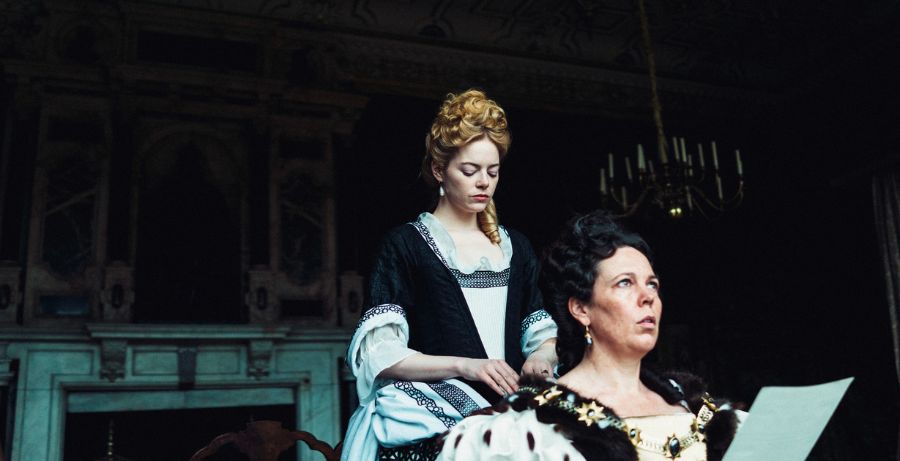
Perhaps technically the most acclaimed of the Yorgos Lanthimos movies, The Favourite is the least disconcerting. It’s among the most realistic and grounded of his films, despite taking place in a castle. There’s no outlandish plot or magical realism. It’s all good old-fashioned rivalry. It’s also the Lanthimos movie least abusive to its characters, which is ironic, given the condition Sarah (Rachel Weisz) is in at the movie’s conclusion.
But The Favourite otherwise lacks some of Yorgos’ sickest inclinations. Sure, he’s a man making a movie about lesbians who spend a lot of time in bed together, and sure, that intimacy is weaponized to torture each other over and over again, usually to Queen Anne’s (Olivia Colman) twisted pleasure. But if the most visually or physically upsetting thing in the movie is Abigail (Emma Stone) stepping on a rabbit or splattering blood on Sarah’s face shooting pigeons, it’s a pretty tame affair by Lanthimos’ standards.
9. Kinetta
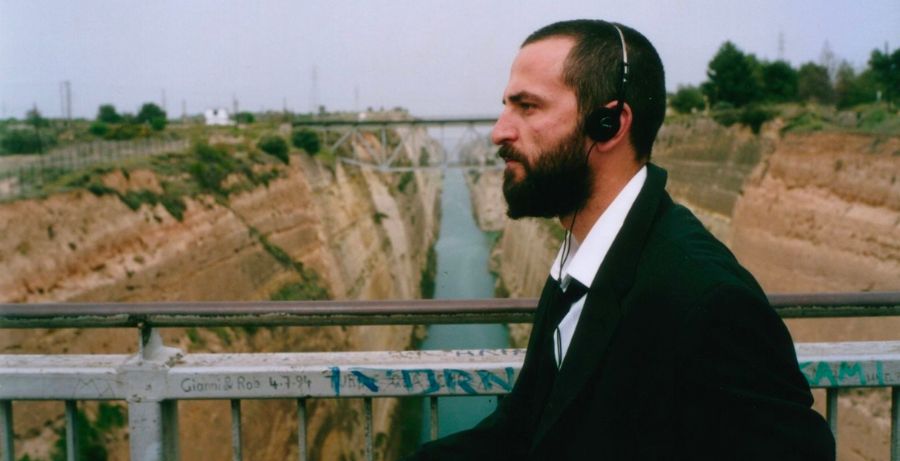
Kinetta was the first of many Yorgos Lanthimos movies back in 2005. It’s kind of a practice run for some of the themes that would return again and again in his movies. It’s very experimental in style as a group of random individuals reenacts and films intimate partner violence. If this was the only one of Yorgos Lanthimos’ movies ever made, it’d be clear the guy is pretty weird. Who even has the idea to make a movie like this in the first place? And it’s purposefully rendered with poor performances, making Kinetta all the odder to watch.
8. Poor Things

Poor Things is both the most narratively satisfying and the most surreal of all the Yorgos Lanthimos movies. It takes place completely in a fantastical, resplendent version of our world. It’s also by far the deepest exploration of everything Lanthimos has ever pondered, chiefly, whether intimacy is a tool of liberation or oppression. Emma Stone is completely and utterly unhinged in this movie in the best of ways, giving a performance nearly matched by most of her costars but also overflowing with the sense that Lanthimos just really enjoyed an excuse to make a movie where Emma Stone is constantly naked.
Bella encountering these terrible forces for the first time at this pivotal moment in her life lets Lanthimos make sickeningly honest commentary on classism and sexism. Its final act and a half are quite on the nose, explaining verbatim to the audience that Bella Baxter (Emma Stone) is a self-emancipated woman free to be with whomever she wants to be with and how she wants to be with them, no matter the desires of any man otherwise. None of this is even to mention the completely outlandish coloring, costumes, sets, prosthetics, and sound design that craft a completely opulent, inexplicable world for Poor Things to inhabit. Plus, the dialogue is a mile a minute of dense, colorful language. It’s a work of gross genius that succeeds because it manages to be at once perverted, sincere, and gorgeous. But even still, it’s fairly mundane by the standard of Yorgos Lanthimos movies.
7. Kinds of Kindness: The Death of R.M.F.
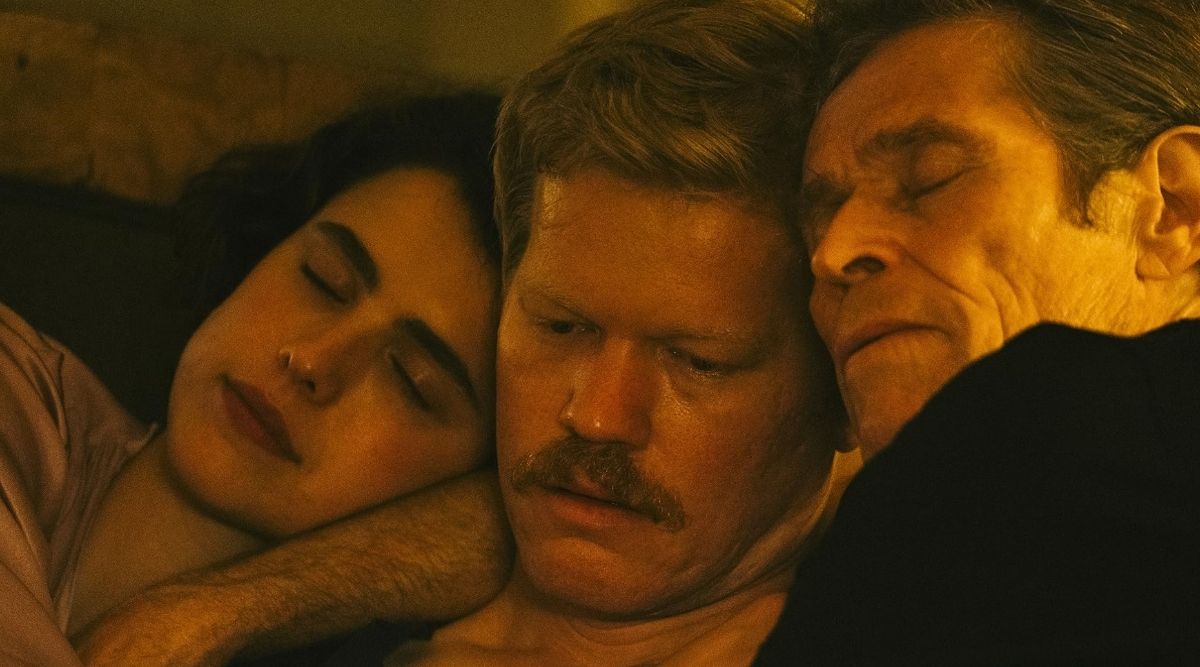
“The Death of R.M.F.” is the first of three stories in Kinds of Kindness. It’s the least bracing in an increasingly sick and upsetting tales. “The Death of R.M.F.” continues Lanthimos’s long history of characters speaking stiffly and reenacting things. In this case, it’s Robert (Jesse Plemons) reenacting his own dream one scene later, only this time, it’s presented in color instead of black and white like the first time. The whole film, though, is about power and sexual domination, the core recurring themes of Yorgos Lanthimos movies. Raymond (Willem Defoe) controls every aspect of Robert’s life, from when he can sleep with his wife Sarah (Hong Chau). But what launches “The Death of R.M.F.” higher on the sickness scale is that not only is the whole plot and Robert’s torture about Raymond asking Robert to kill a man. Raymond is forcing Robert to secretly give Sarah abortion pills, which is depicted in bloody detail on screen.
6. The Lobster
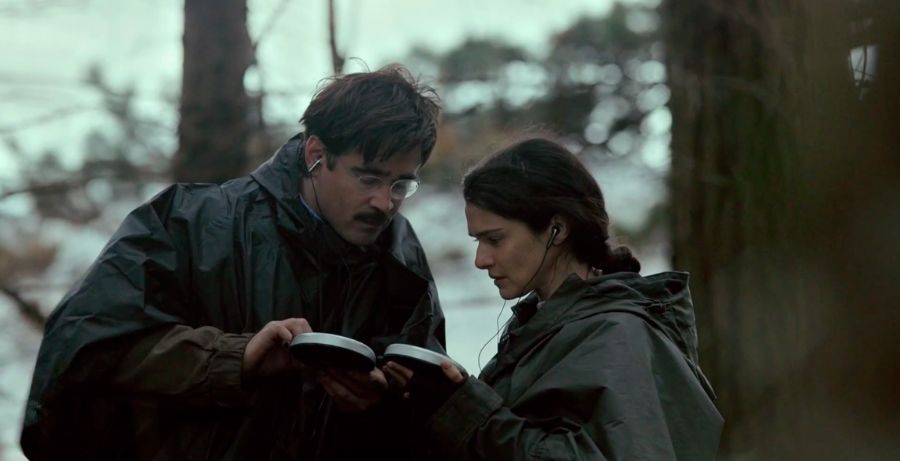
One of the most popular Yorgos Lanthimos movies, The Lobster debuted as the first of his English-language in 2015. It’s a shockingly bizarre movie set in a world where anybody who does not find themselves in a relationship before too long is turned into an animal. If a plot like that is this low on the sicko-meter, you know this guy and his work are truly out there. The Lobster sports some of the signature animal abuse found in many of the filmmaker’s exhibitions. It also ends with David (Collin Farrel) contemplating gauging out his eyes so he can be blind like the Shortsighted Woman (Rachel Weitz) becomes by the film’s end.
But The Lobster ranks low as far as Lanthimos’ movies’ oddity because the abuse is institutional and the commentary on intimacy and relationships is mundane. In most Lanthimos movies, characters directly control and abuse other characters. Here, the whole society is taken advantage of by whatever authority demands people be married, and the hotel that David stays in is merely carrying out this greater purpose. When David escapes the hotel and winds up joining an anti-marriage rebel group but falls in love with somebody based on the smallest similarly anyway, it’s in stark comparison to how people wind up married back at the hotel. The whole affair demonstrates the absurdity of marriage as an institution and laments the inevitability of falling in line with societal norms regardless of our best intentions. This isn’t sick; it’s just sad. Farrel’s deadpan delivery is bracing, though.
5. Kinds of Kindness: R.M.F. Eats a Sandwich
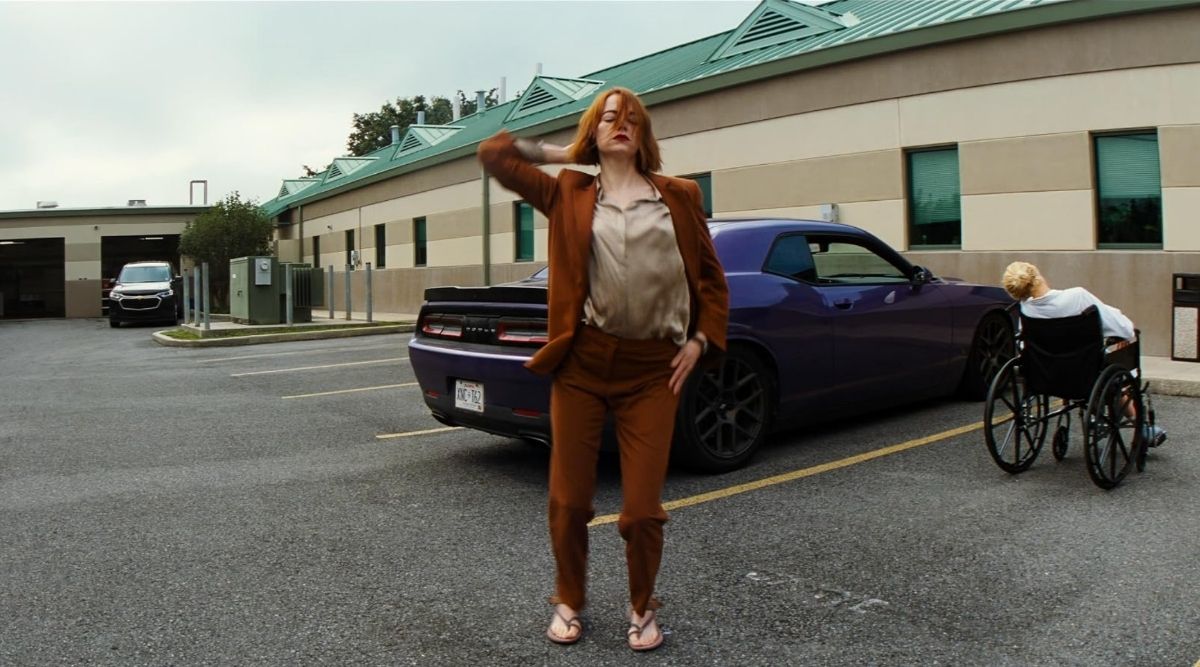
Yorgos Lanthimos loves to explore abuse in his films, for better and worse. Kinds of Kindness’ third act is about a sex cult led by Omi (Willem Dafoe) and Aka (Hong Chau). The cult tasks Emily (Emma Stone) and Andrew (Jesse Plemons) to search for a woman who can revive the dead. Along the way, Emily keeps disappearing to see her ex-husband (Joe Alwyn) and daughter. He does some absolutely heinous things to her. The cult finds out if you’re “pure” by forcing you to pass out in a sauna and licking your sweat. And two twins, played by Margaret Qualley, both die quite graphically. The film is also obsessed with women’s naked bodies in classic Yorgos fashion (although we do get a tiny little peak at Defoe too, to be fair). Also, Emma Stone does some sick dancing at one point, which is fun. This is the act in Kinds of Kindness that most vividly demonstrates the themes that make Yorgos Lanthimos’s films so sick. His obsession with power, domination, and sexual violence are on full and freakish display.
4. Alps
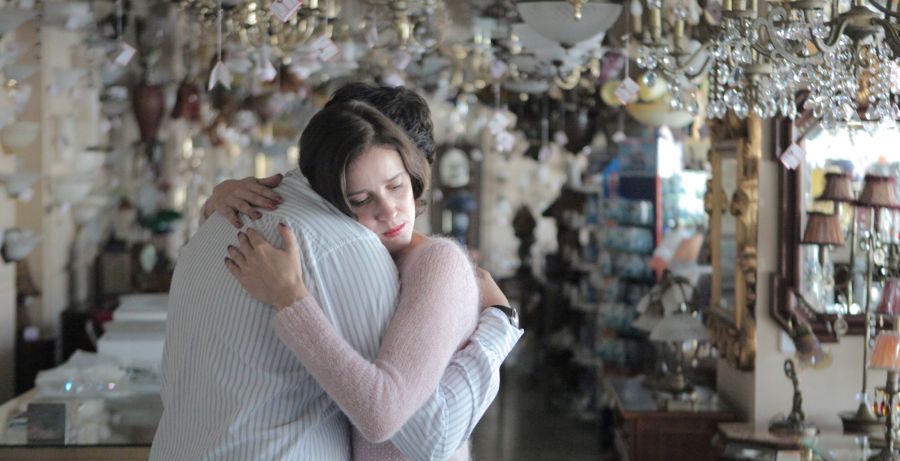
Kinetta walked so Alps could run. Alps takes the concept of a group of random individuals acting out violence and splits it into two different aspects: acting out intense scenarios and violence among partners. The four principal characters of Alps form a group that people can hire to have them come and pretend to be dead loved ones, reenacting situations together. The scenarios begin innocent enough, but as they become more intimate and demanding, so do the Coach’s (Johnny Vierkis) expectations. He’s already depicted as a fair bit abusive from the start when he berates and refuses to let the Gymnist (Ariane Labed) dance to pop music. It’s topped off by the physical abuse he commits against her and the Nurse (Angeliki Papoulia). Alps is all about men exacting control through intimacy and violence. And unlike with Kinds of Kindness, where the film has some levity and acts like it knows it’s going over the top, Kinetta contains no catharsis whatsoever.
3. The Killing of a Sacred Deer
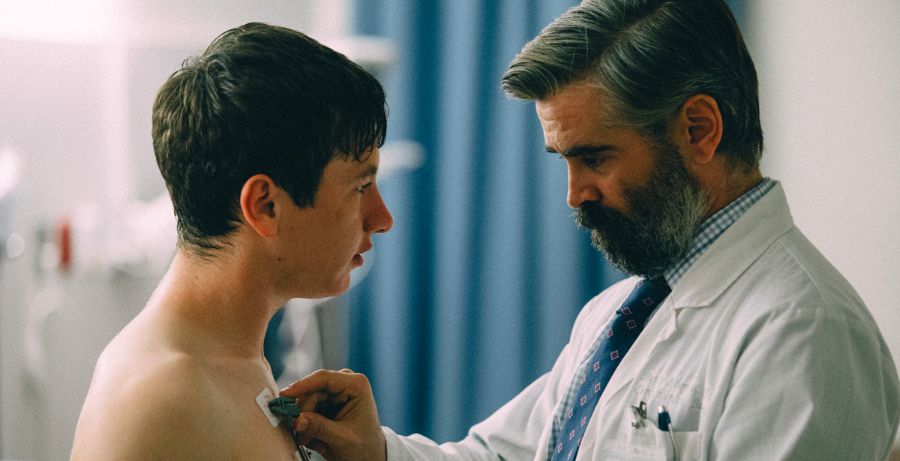
Barry Keoghan’s performance alone launches The Killing of a Sacred Deer to the top of this list. For as deadpan and creepy as Farrel was in The Lobster and is again here, Keoghan puts him and everyone else in this movie to shame. The Killing of a Sacred Deer is one of Lanthimos’ most stark explorations of control, several layers deep. Does a surgeon control the fate of his patient? Does a father control the desires of his daughter? The movie’s made complete with a more subtle magical realism than The Lobster. Keoghan’s Martin magically controls the sickness and health of Farrel’s characters’ children. There’s no explanation; it’s just fact. This total lack of exposition ups the creepiness, as does the extreme violence ultimately committed against Martin. The fact that he’s a teenager makes it all the more sickening.
2. Kinds of Kindess: R.M.F. Is Flying
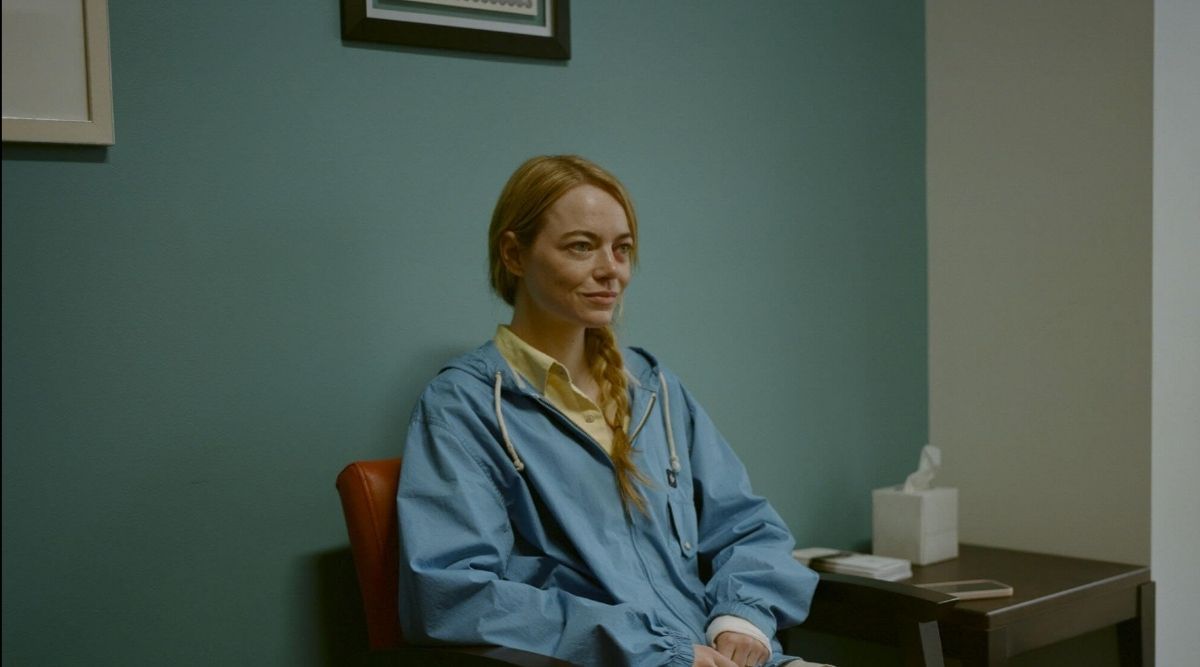
The second act in Kinds of Kindness, “R.M.F. is Flying,” is by far the sickest. Daniel (Jesse Plemons) is a cop. That’s the first red flag. His wife Liz (Emma Stone) went missing when her science expedition boat sank. Miraculously, she’s found alive and returned home. But slowly, Daniel becomes convinced this isn’t actually his wife. She suddenly enjoys chocolate, doesn’t remember his favorite song, and her feet are too big for her shoes. Daniel loses his mind, shoots a guy (Joe Alwyn) at a traffic stop, and becomes an unhinged recluse.
The film starts with Daniel begging his two best friends (Mamoudou Athie and Margaret Qualley) to watch “one of their old videos,” which is, of course, an adult video containing the absolute most graphic scene of its kind you’ll likely ever witness in a movie theater. And the film ends with Daniel asking Liz to mutilate herself for him to eat. Liz chops off her thumb and it is downright disgusting. Then she manages to tear out her liver for him, which sits horrifyingly on the floor next to her dead body and a massive pool of blood. Every single thing about “R.M.F. is Flying” is more upsetting than the next. It’s loaded with blood, bodies, and abuse to the point where you might have to be a sicko yourself not to get queasy about it.
1. Dogtooth

Nothing in Kinds of Kindness, or any other of the other Yorgos Lanthimos movies before it, can hold a flame to Dogtooth. The movie that brought Yorgos to his original acclaim, Dogtooth traps three adult-ish children in a remote compound with two parents who actively contort their reality by teaching them the wrong meanings for a litany of words. They’re also prohibited from leaving the house until their “dogteeth” fall out. Throughout the movie, the kids slowly start to chip away at the edges of the cruel fantasy their parents, especially their father have constructed. But not before incest takes over the household because, like so many of Lanthimos’ subjects, these are horny young people, and they have no other concept of healthy relationships.
There’s graphic violence against animals and an innocent woman, but Dogtooth is at the top of the sicko list because there’s no discernable reason for the parents’ behavior. In every other movie, the subjects have motives. They’re jealous, they’re out for revenge, or society has created a norm that renders cruelty an inevitability. But here, there’s no justification. Just pure, unadulterated abuse and cruelty. The most sickening part of it all, though, is that the only rationale for anything that happens in this movie is that it’s just because the parents wanted to.
Yorgos Lanthimos movies are always unique, powerfully acted, generally perverse, and usually go a step too far. Yet, they are boundlessly compelling. You can’t stop looking at the horrors he depicts. They reflect some of the most awful aspects of humanity with complete obscenity. But even at their grossest or most objectifying, they are still undeniably fascinating.







